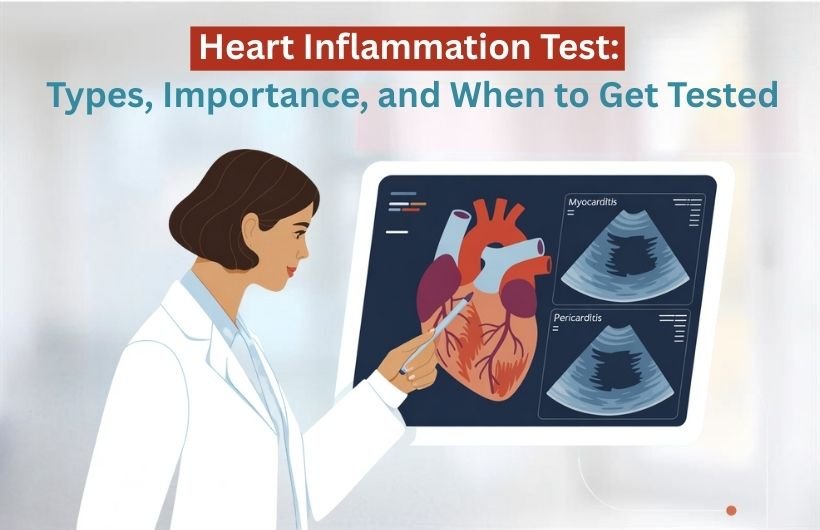Heart diseases remain one of the leading causes of death globally. One critical yet often overlooked factor in cardiac health is inflammation. Inflammation can silently damage the heart and blood vessels, contributing to conditions like atherosclerosis, heart attacks, and strokes. That is also the reason why heart patients have to pay attention to certain inflammation tests that, at the time of early warning signs, are present before they become severe.
If you have a cardiologist in Ahmedabad as a care provider or are looking for a Heart care hospital in Ahmedabad in your area, get to know these diagnostic tools, which may save your life.
This guide presents a list of the best inflammation tests that heart patients should be made aware of based on medical research and clinical relevance.
Why Inflammation Matters in Heart Health
Chronic inflammation damages arteries, increases plaque buildup, and raises the risk of heart failure or stroke. For patients with existing heart conditions, getting a Heart Inflammation Test ensures early detection and preventive treatment.
For heart patients, which we may also note is an issue of choice, it is a must that they monitor inflammation levels.
1. C-Reactive Protein (CRP) Test
- What it measures: C-reactive protein made by the liver.
- Why it matters: High-sensitivity CRP (hs-CRP) detects early blood vessel inflammation linked to heart disease.
- Risk levels:
- Less than 1 mg/L = Low risk
- 1–3 mg/L = Moderate risk
- More than 3 mg/L = High risk
2. Erythrocyte Sedimentation Rate (ESR) Test
- What it measures: How quickly red blood cells settle in a test tube.
- Why it matters: A high ESR signals ongoing inflammation that may worsen existing heart problems.
- Best used for: Tracking inflammation trends along with CRP.
3. Fibrinogen Test
- What it measures: Fibrinogen, a blood-clotting protein.
- Why it matters: High fibrinogen levels raise the risk of blood clots, heart attacks, and strokes.
- Normal range: 200–400 mg/dL
Typical Ranges: Standard Range:
Between 200 to 400 mg/dL is what we consider normal.
- Levels at or over 400 mg/dL may indicate.
- Assessing clotting risk
- Identifying chronic inflammation
- Monitoring treatment response
When Should You Get a Heart Inflammation Test?
- Chest pain, fatigue, or shortness of breath
- History of heart attack or stroke
- Risk factors: diabetes, hypertension, high cholesterol, smoking
- Family history of heart disease
Choosing the Right Heart Specialist
If you live in Gujarat and are looking for a good Cardiologist near you in Ahmedabad, we recommend you see a specialist who provides advanced diagnostic tools and personalized heart care.
In some hospitals in Ahmedabad, you will find that they do not have access to the latest in diagnostic technology, which is why choosing the right Heart care hospital in Ahmedabad is very important.
In terms of heart health, what does it matter but that Dr. Jignesh Patel is a Cardiologist surgeon in Ahmedabad who is known for his accuracy and care in the diagnosis and treatment of heart conditions.
At his advanced heart care facility, patients are provided with an in-depth evaluation, which includes CRP, ESR, and fibrinogen as part of a tailored cardiac treatment plan.
Book your appointment today to stay ahead of inflammation and improve your heart health with data-informed expert care.






